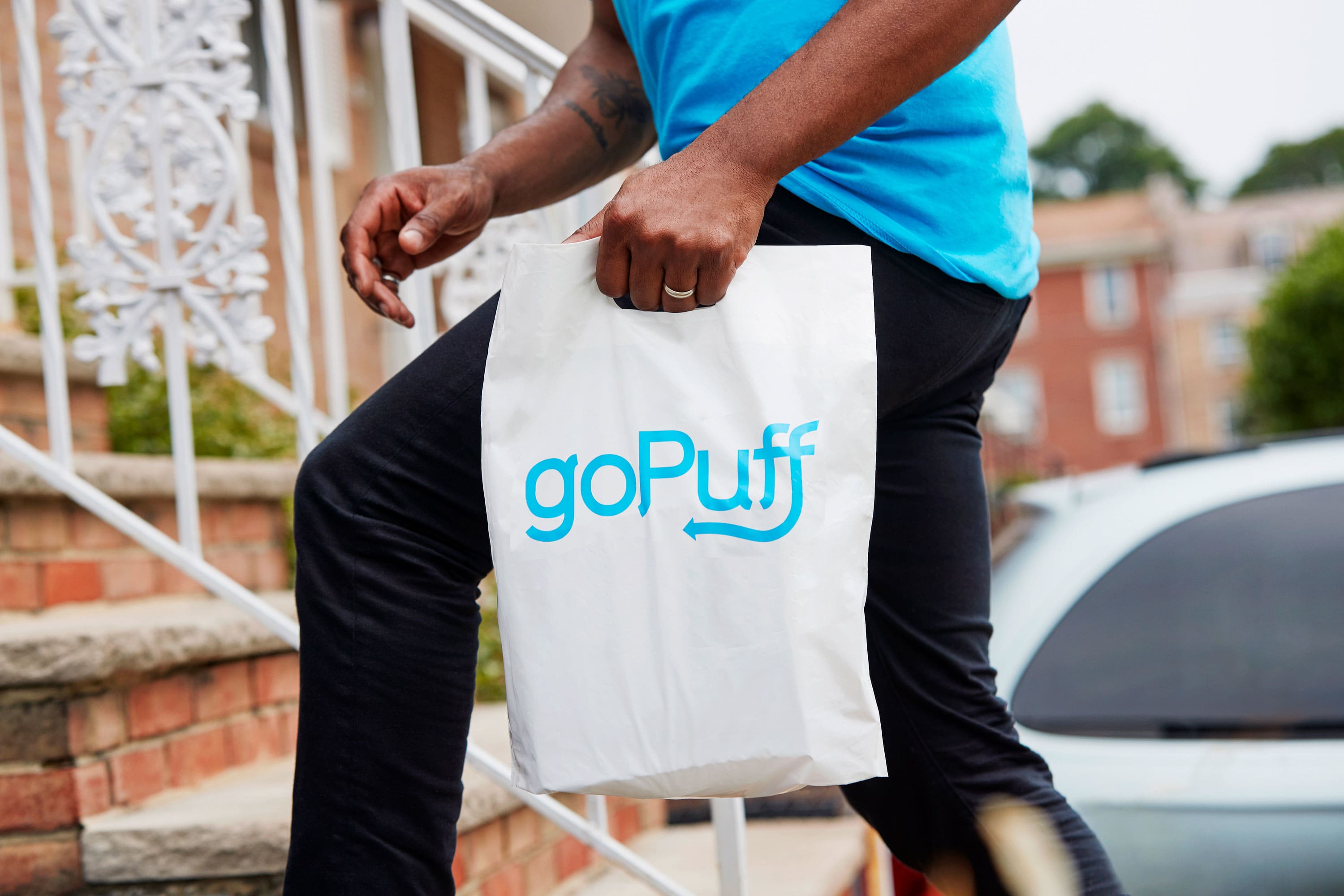SoftBank-backed Gopuff snags another mega investment, boosting valuation to $15 billion

Delivery start-up Gopuff announced Friday that it has raised a $1 billion Series H round that values the two-time CNBC Disruptor 50 company at $15 billion — nearly quadruple its valuation less than a year ago when Gopuff raised $380 million at a $3.9 billion valuation.
The latest funding round includes new backers Blackstone and Guggenheim Investments, as well as existing investors Fidelity Management and SoftBank’s Vision Fund, among others. Gopuff has raised a total of $3.5 billion to date.
The Philadelphia-based company began in 2013 as a craving of two college students at Drexel University, Yakir Gola and Rafael Ilishayev, who wanted M&Ms and soda late into the night without a car and trip to the convenience store being necessary. But it has long since graduated from those college-kid days.
Gopuff now delivers to over 850 cities and within 41 U.S. states (plus Washington, D.C.), and has more than 500 micro-fulfillment centers. Earlier this year, the company announced a partnership with Uber that now allows customers in more than 95 U.S. cities to order items through Uber Eats, including a range of household essentials like over-the-counter medicines and cleaning supplies, as well as snack foods and alcohol.
“When Raf and I started this company eight years ago, it was important for us to build a business that is very profitable and has really strong margins,” Gola said on CNBC’s “TechCheck” Friday morning. “When you look at our business, due to vertical integration, we make our margins off our product sales and our advertising business — not off drivers and service fees,” he said, adding that the company was cash flow positive for the first three years before raising any capital.
Gopuff founders, Yakir Gola and Rafael Ilishayev
Source: Gopuff
In recent months Gopuff has expanded its consumer base to other demographics by serving up products that the company calls “instant needs.” And the company is pulling in more cash after the coronavirus pandemic pushed millions of consumers indoors, propelling them to rely on online services for both essential and non-essential goods.
In March, Gopuff raised over $1.1 billion in a round that included D1 Capital Partners, Fidelity Management and Research Company, Baillie Gifford, Eldridge, Reinvent Capital, Luxor Capital and SoftBank’s Vision Fund, and which it said would be used to double down on domestic and international expansion.
More recently, Gopuff raised $1.15 billion at a $8.9 billion valuation and expanded to California and internationally to the United Kingdom. It has put a good part of its capital to use in a string of deals, including last month’s purchase of Liquor Barn — which accelerated the company’s expansion in Kentucky and gave it 23 additional storefronts — as well as last year’s purchase of BevMo for $350 million. Additionally, in June, it acquired fleet management software platform rideOS for a reported $115 million.
But the company isn’t the only one working to expand the scope of products that consumers can get delivered to their doorstep within an hour or on the same day. Amazon‘s 2-hour Fresh service, as well as Instacart, have added categories like groceries, personal care items and household goods.
The typically asset-light gig economy model is evolving as apps continue to lose money and regulatory scrutiny heats up.
Uber and DoorDash have been expanding their presence in convenience delivery. Over the last year, Uber sold off money-losing units and acquired Drizly and Postmates to expand its delivery footprint. DoorDash, meanwhile, has been building its own line of owned and operated convenience stores under the DashMart brand.
Gopuff ranked No. 36 on this year’s CNBC Disruptor 50 list. Sign up for our weekly, original newsletter that goes beyond the list, offering a closer look at Disruptor 50 companies, and the founders who continue to innovate across every sector of the economy.